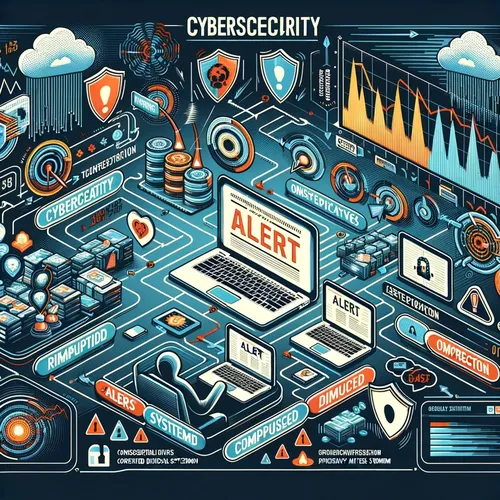China's Cyber Dragons Awaken: Hacks, Attacks, and Escalating Threats!
- Author
- Quiet. Please
- Published
- Thu 05 Jun 2025
- Episode Link
- https://www.spreaker.com/episode/china-s-cyber-dragons-awaken-hacks-attacks-and-escalating-threats--66411024
This is your Red Alert: China's Daily Cyber Moves podcast.
Red Alert, folks—Ting here, your cyber sleuth and China watcher, reporting live from the frontlines of the digital battleground. If you thought this week would be quiet, think again. The past forty-eight hours have been a whirlwind for America’s critical infrastructure, and China’s not pulling any punches.
Let’s get right to it. The buzz started late Tuesday, when CISA and the FBI lit up their emergency wire reporting fresh indicators of Volt Typhoon activity. Now, for the uninitiated: Volt Typhoon isn’t your average script kiddie squad. We’re talking about a persistent group of PRC state-sponsored hackers that’s mastered the art of blending in—they use legitimate network tools, hiding in plain sight, making detection a cybersecurity version of "Where’s Waldo," but with the stakes dialed to eleven. Just yesterday, new logs surfaced showing lateral movement attempts from IT environments directly to operational technology assets—think power grids, water plants, and yes, air traffic systems. These aren’t random pranks; it’s systematic pre-positioning, laying traps for a moment when sabotage would hit hardest.
Wednesday morning, Salt Typhoon—a close cousin in the Chinese APT family—took center stage. Salt Typhoon was spotted leveraging phishing payloads tailored for the energy sector, using "living off the land" tactics to compromise not only computers, but the very control systems that run pipelines and substations. Communications and transportation sectors were also pinged. At least two US airports confirmed network anomalies, with cyber forensics teams scrambling to isolate affected subsystems.
Then, as if that wasn’t enough, researchers flagged a new campaign from APT41, China’s elite cyber-espionage group, exploiting Google Calendar for covert command-and-control channels targeting government agencies. Imagine your innocuous calendar reminders feeding signals to an adversarial playbook—yep, scary but true.
This week, Congress isn’t just watching: they’re acting. The Strengthening Cyber Resilience Against State-Sponsored Threats Act is back on the floor, and lawmakers like Chairman Moolenaar are calling out Beijing’s playbook. Their message: defend the digital homeland at all costs.
Here’s your rapid-fire timeline. Tuesday, 7pm EST—first Volt Typhoon network signatures flagged on an East Coast water utility. By midnight, CISA’s emergency alert landed in every major city’s inbox. Wednesday, noon—energy grid anomalies traced to Salt Typhoon payloads. Early Thursday, reports come in of APT41’s Google Calendar backdoor.
Now, let’s talk escalation. If pre-positioned malware is triggered, expect real disruption—think blackouts or airport shutdowns. With Beijing’s hybrid offensive blending cyber with geopolitics (especially as Taiwan tensions rise), the risk moves from theoretical to practical overnight.
My advice? Patch fast, monitor logs like a hawk, and rehearse those incident response plans. In cyberspace, the dragon never sleeps—and neither can we. Stay sharp out there.
For more http://www.quietplease.ai
Get the best deals https://amzn.to/3ODvOta
